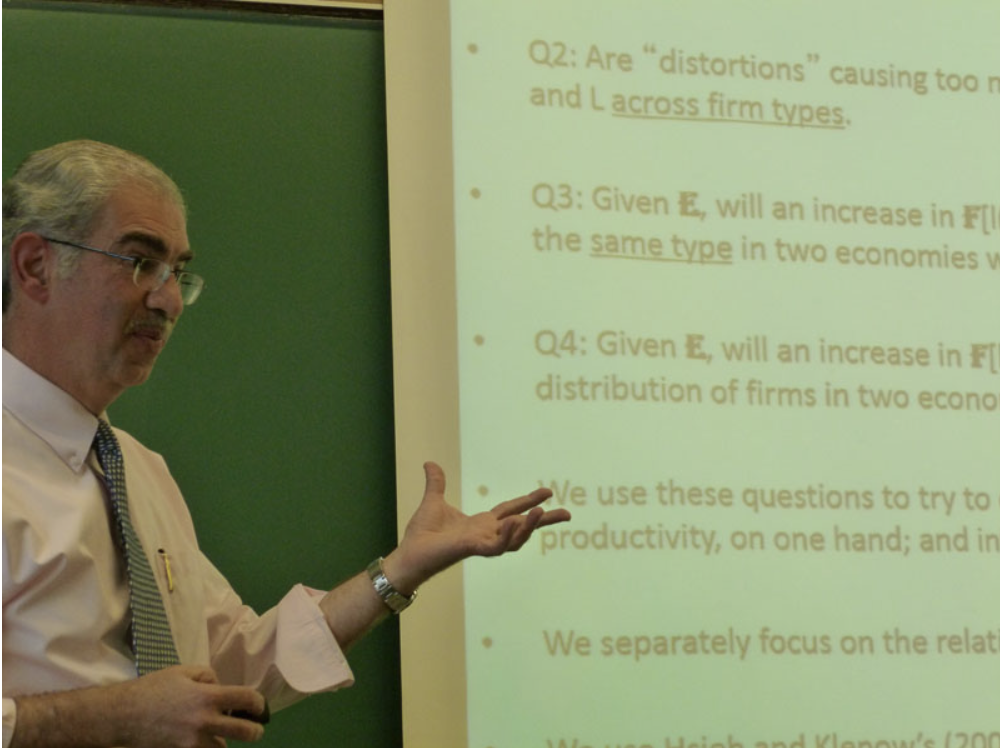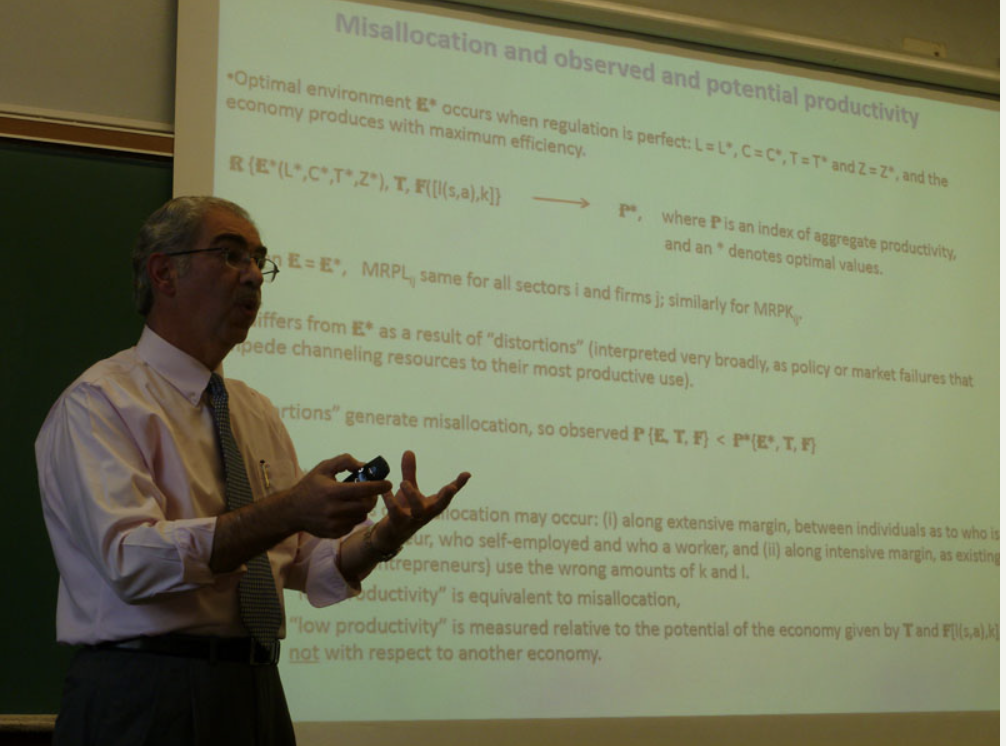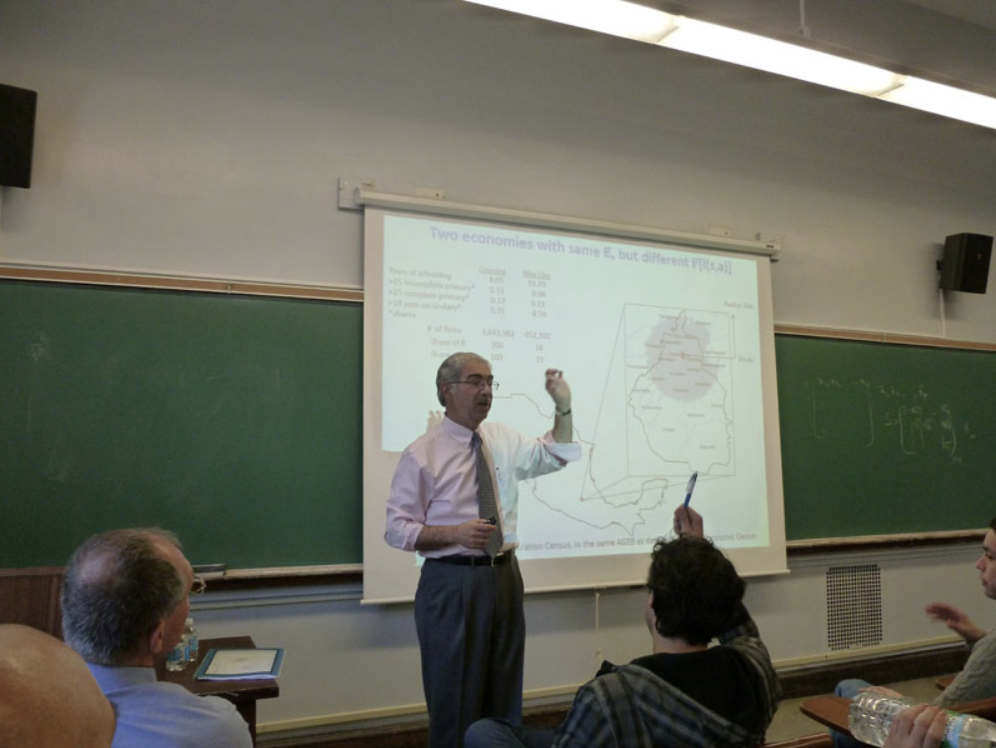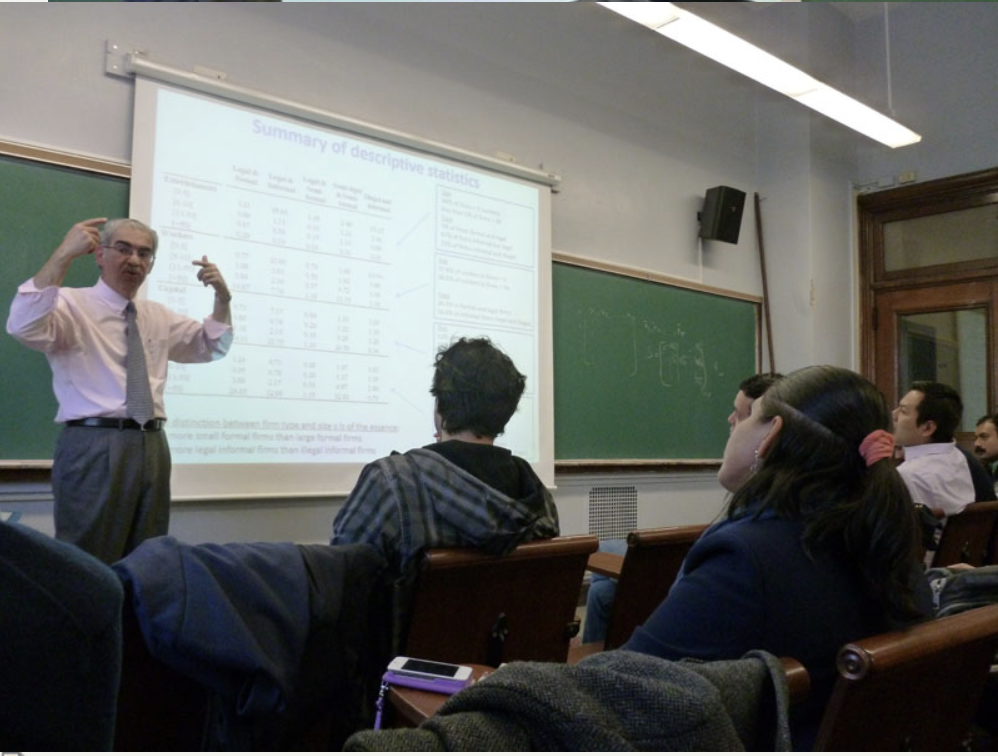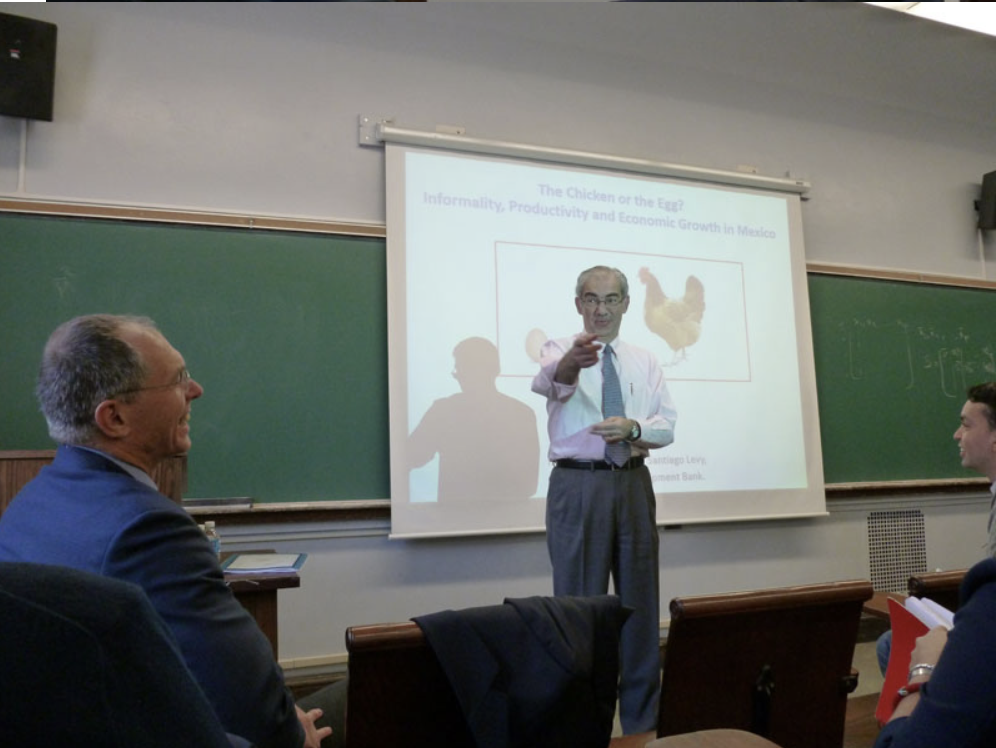On Thursday, April 2nd, Santiago Levy, the Vice President for Sectors and Knowledge at the Inter-American Development Bank, presented his latest research in a presentation entitled “The Chicken or the Egg? Informality, Productivity and Economic Growth in Mexico” to PEPM students and other guests on April 2, 2015 within an event co-sponsored by the Program in Economic Policy Management and the Center on Global Economic Governance at SIPA.
In his lecture, Dr. Levy elaborated on what he calls a Mexican paradox. He explained that Mexico demonstrates "solid macroeconomic performance, export success and accumulation of human and physical capital, but very little growth." He went on the ask the audience, "Why? Productivity has stagnated. Is that because the informal sector is too large, or the opposite? What explains persistent informality and stagnating productivity?"
In the 1990-2013 period, Dr. Levy’s research found stagnant Total Factor Productivity growth, a largely persistent informal sector and low average annual growth rate despite macroprudential and successful developmental efforts. He challenges the view that education (and similarly growth) will take care of informality. In his closing remarks, Dr. Levy concluded that "Despite getting an A+ from the IMF, despite NAFTA, despite a lot of effort in human capital, Mexico is an economy that is characterized by a large amount of distortions. More importantly, these distortions are generating a very large informal sector and reducing the productivity of the economy in a substantial way."
Dr. Levy’s lecture built upon an integral part of the PEPM Spring Microeconomics II course taught by Professor Jan Svejnar. The first part of the course covers a wide range of microeconomics topics essential for policy debate, such as labour market frictions, information assymetries and wage models. The second part of the course is comprised of guest lectures which introduce PEPM students to the most recent frontier research done in the fields of microeconomics.
Learn more about Prof. Jan Svejnar's “Microeconomics II – Topics in Policy-oriented Microeconomics class” and other PEPM courses here.
View Santiago Levy’s presentation here.

